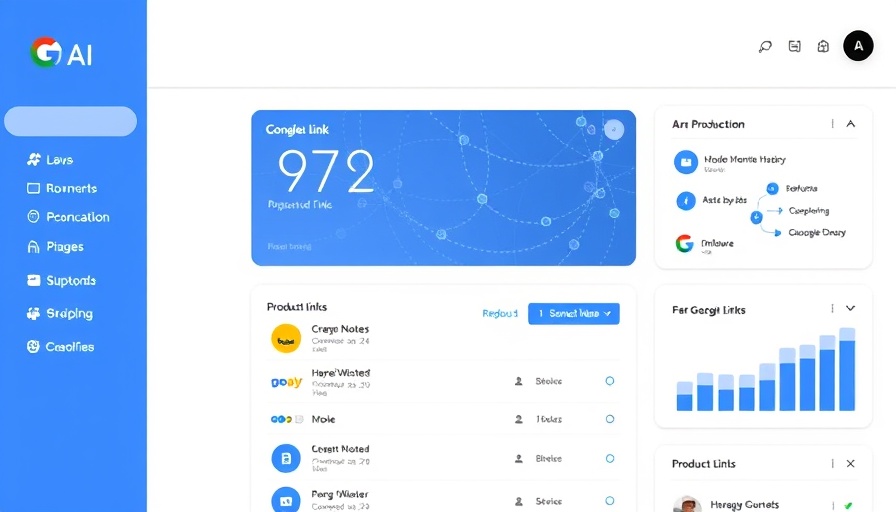
Introducing Google's New AI Measurement Solutions
At the recent Google Marketing Live event, Google unveiled a suite of upgraded AI-powered measurement tools that cater to marketers of varying sizes. These tools aim to enhance performance tracking, boost return on investment (ROI), and facilitate better utilization of first-party data. The enhancements are particularly newsworthy for small and mid-sized businesses, as increased accessibility marks a significant shift in how measurement is traditionally approached.
Incrementality Testing Made Easy
Historically, executing incrementality tests was a luxury reserved for the largest brands with hefty advertising budgets. The new updates change this narrative dramatically by lowering the minimum spend for incrementality testing from an unattainable $100,000 to a more accessible $5,000. This democratization allows mid-market and smaller players to conduct meaningful tests that reveal the true impact of their advertising efforts.
The introduction of a new Bayesian-based methodology promises to enhance test result reliability, with experiments designed to last from seven days to 56 days, 28 days being the optimal duration. This means marketers can now move beyond mere conjecture and last-click attribution. By isolating the actual effects of their Google Ads campaigns, they can strategically adapt budgets and creative content with newfound confidence.
Enhanced Cross-Channel Measurement Insights
Another promising enhancement comes from Google Analytics, where marketers can soon gain a clearer picture of the cross-channel performance. With improved visibility into customer journeys across various Google properties and beyond, teams can accurately gauge ROI and map out user interactions more comprehensively. As deeper insights roll out over the coming months, brands engaged in Performance Max or upper-funnel campaigns will find these features particularly beneficial.
Data Manager: Empowering First-Party Data Activation
A pivotal development is the introduction of 'Data Manager.' This centralized tool streamlines the gathering, storage, and activation of first-party data while adhering to privacy protocols. Given today’s stringent privacy regulations and the impending cookie deprecation, marketers are under pressure to leverage owned data effectively, and Data Manager offers a robust solution.
The tool employs confidential computing to ensure data protection, thus enabling authorized use of sensitive information. Upcoming features like data strength recommendations will also guide marketers on optimizing their data strategies, allowing brands to fill gaps and maximize effectiveness.
Adapting to a Changing Marketing Landscape
The enhancements announced at Google Marketing Live reflect a growing trend towards data-driven marketing, where precision, performance, and privacy are paramount. Adapting to these changes is crucial for marketers looking to sustain and grow their outreach efforts. With improved measurement and activation tools now coming to the forefront, marketers are positioned to navigate the complexities of a digital advertisement landscape with greater agility and insight.
Embracing New Tools for Better Marketing Outcomes
As these new tools roll out, brands must take proactive steps to embrace them. Learning how to leverage the enhanced measurement and data capabilities will be essential for gaining a competitive edge in the ever-evolving marketplace.
In conclusion, brands must not only stay informed about these advancements but also actively engage with them to maximize their marketing effectiveness. Understanding how to utilize Google’s AI-driven solutions could very well define success in the future of marketing.
By utilizing these tools, businesses stand to not only improve their ad performance but also harness the full potential of their first-party data. As we dive deeper into a cookie-less future, these capabilities will be invaluable in establishing a strong digital presence.
 Add Row
Add Row  Add
Add 




Write A Comment